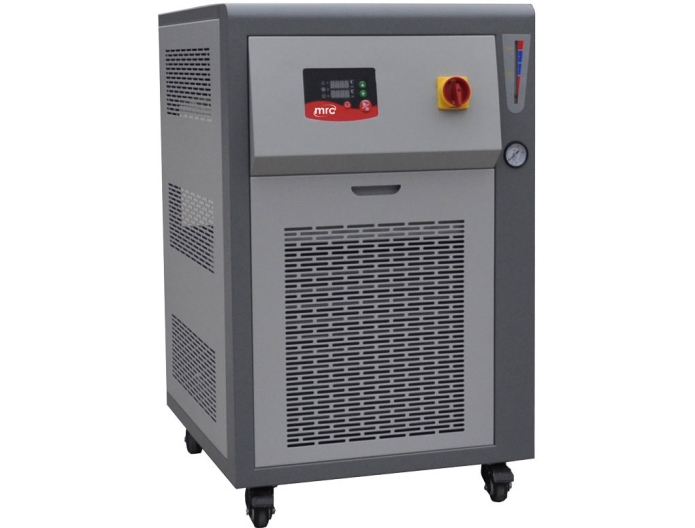Introduction
Laboratory water coolers are crucial for maintaining controlled environments in research, medical, and industrial labs, where precise temperature regulation is essential for accurate results and the safety of both personnel and equipment. These cooling systems are specifically designed to dissipate excess heat generated by laboratory processes, machinery, or instruments, ensuring optimal performance and preventing overheating.
The need for temperature control in laboratories spans various applications, from chemical analysis and medical research to environmental testing and pharmaceutical manufacturing. Laboratories often work with sensitive samples, materials, and instruments that require stable thermal conditions to prevent degradation or malfunction.
Key Benefits of Laboratory Water Coolers
- Precise Temperature Control Laboratory water coolers are equipped with advanced controls to maintain consistent cooling and precise temperature regulation. This is crucial for processes that require stable conditions, such as chemical reactions, medical studies, and environmental tests.
- Compact and Space-Saving Design These coolers are designed to occupy minimal space, making them suitable for small and crowded laboratory setups. Their compact size ensures they can fit into tight areas without compromising on performance.
- Efficient Heat Dissipation Laboratory cooling systems are engineered to effectively remove excess heat generated by laboratory equipment, preventing overheating and ensuring reliable operation. This feature is particularly important for sensitive devices like spectrometers, centrifuges, and incubators.
- Energy Efficiency Many laboratory water coolers incorporate energy-saving features like variable speed pumps and eco-friendly refrigerants. These technologies help minimize energy consumption, reducing operational costs and environmental impact.
- Quiet Operation Noise levels in laboratory environments are often critical. Laboratory water coolers are designed to operate quietly, ensuring that they don’t interfere with sensitive experiments or create distractions in research settings.
Applications of Laboratory Water Coolers
- Chemical Analysis Laboratory water coolers regulate temperatures during chemical reactions or sample storage, ensuring that conditions remain stable for accurate results.
- Medical and Biotech Research These coolers are used to maintain temperatures for incubators, refrigerators, and storage areas in research labs to preserve the integrity of biological samples, reagents, and chemicals.
- Laser Cooling In laser-based research, water coolers are used to dissipate heat generated by lasers, preventing overheating and ensuring precision.
- Environmental Testing Laboratory water coolers are essential in maintaining consistent environmental conditions for climate testing chambers, ensuring that temperature and humidity levels are maintained within specified ranges.
- Pharmaceutical Manufacturing Laboratory cooling systems regulate temperatures in pharmaceutical development and manufacturing processes, helping maintain the stability of sensitive drug formulations.
Innovations in Laboratory Water Coolers
- Smart Monitoring Systems Modern laboratory water coolers come with IoT-enabled features, allowing remote monitoring and real-time data analysis. Operators can track cooling performance, energy usage, and maintenance needs from any device, ensuring operational efficiency.
- Environmentally Friendly Refrigerants To comply with environmental regulations, newer laboratory coolers use refrigerants with low Global Warming Potential (GWP), reducing the ecological footprint of laboratory operations.
- Modular Designs Modular water cooler systems allow for flexible configurations, making it easy to scale cooling capacity depending on changing laboratory needs. These modular units can be integrated into various laboratory setups, from small research labs to large industrial testing centers.
- Advanced Filtration Systems Some laboratory water coolers feature advanced filtration technologies that reduce scaling, corrosion, and microbial growth, ensuring the coolant remains clean and the system performs optimally for longer periods.
- Energy-Efficient Components With features like variable frequency drives (VFDs) and low-energy pumps, laboratory water coolers are designed to minimize energy consumption without sacrificing cooling performance. This makes them a sustainable choice for laboratories looking to reduce energy usage.
Conclusion
laboratory water coolers are integral to ensuring that research, experiments, and industrial processes proceed under optimal conditions. By offering precise temperature control, high energy efficiency, and reliable cooling performance, these systems protect sensitive equipment, prevent costly downtime, and contribute to the longevity of laboratory machinery.
With innovations in smart technology, eco-friendly refrigerants, and easy maintenance options, laboratory water coolers continue to evolve to meet the needs of modern scientific research and industrial applications. As laboratories face increasing demands for sustainability, energy conservation, and performance, the role of laboratory water coolers becomes even more critical.

